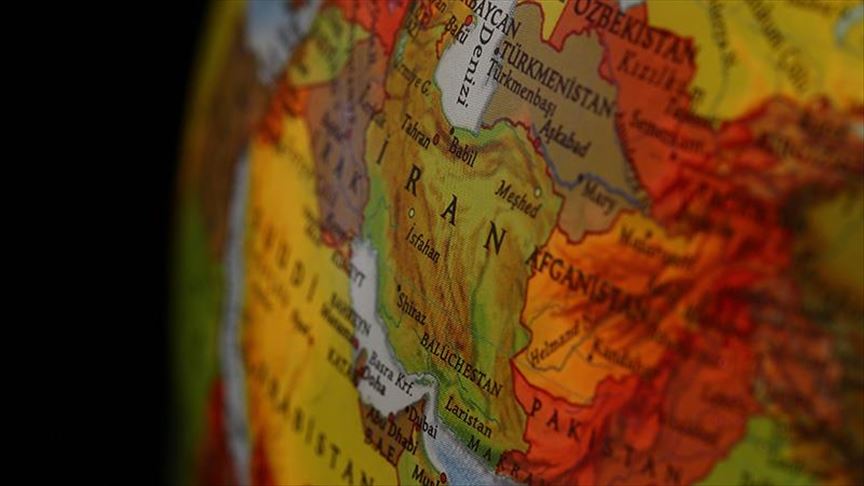President Biden: Try for a Double Play on Iran and Afghanistan
 Southwest Asia is increasingly dangerous. Negotiations about Iran’s nuclear program appear stuck near a breakpoint. With the Kabul government’s precipitous collapse, President Biden’s courageous decision to remove U.S. troops from Afghanistan has gone badly. Each situation threatens grave consequences for the administration. Together they suggest more deadly chaos looms from the Middle East to China’s borders. Iran is an important common factor, central to the first case, important in the second due to geography and potential leverage. The concurrence of threat – but also perhaps opportunity – justifies a new strategy for dealing with it that cuts across both situations.
Southwest Asia is increasingly dangerous. Negotiations about Iran’s nuclear program appear stuck near a breakpoint. With the Kabul government’s precipitous collapse, President Biden’s courageous decision to remove U.S. troops from Afghanistan has gone badly. Each situation threatens grave consequences for the administration. Together they suggest more deadly chaos looms from the Middle East to China’s borders. Iran is an important common factor, central to the first case, important in the second due to geography and potential leverage. The concurrence of threat – but also perhaps opportunity – justifies a new strategy for dealing with it that cuts across both situations.
Joe Biden said before taking office that it was a priority to restore the nuclear deal that was working well until Donald Trump took the U.S. out. He pledged to conclude the endless war in Afghanistan. Today neither objective appears promising. Iran has more enriched and closer to weapons level uranium than when the original deal was signed. U.S. officials acknowledge that negotiating time is limited and, by implication, that military action may be required to keep the president’s pledge never to allow an Iranian bomb.
As the Taliban takes over Afghanistan, Washington is focused as it should be on safely extracting U.S. citizens and the many thousands of Afghans whose lives are at risk for having helped the Americans over 20 years. Soon, however, there will be new proposals, including preparations for off-shore responses to what many anticipate will be a revival of the kind of civil war that ravaged Afghanistan in the 1990s.
Any reasonable proposal should include at the least a significant diplomatic component in which Afghanistan’s neighbors, Iran prominent among them, apply their weight to persuade the Taliban to rule more moderately than it did its first time in power and in particular to keep out international terrorists. Most acknowledge that a key weakness of that approach is U.S. inability to work with Tehran.
Any attempt to overcome that weakness must begin with the nuclear deal and the atmospherics for good or ill that would flow from its fate. President Biden took immediate, unilateral measures to correct Trump mistakes on withdrawals from the Paris climate deal and, in effect, the World Health Organization. With Iran, he chose instead complex indirect talks over sequencing of remedial action and what sanctions Washington would ultimately remove.
Continuing this line means more time for Iran to enrich more uranium at higher levels and with less assurance that international supervisors can give a timely alert should it ever go for a bomb. It also leaves Washington hostage to the tactics of Iran’s new hardline president and with fewer options to help build a regional Afghanistan strategy.
To regain the diplomatic initiative, the U.S. should urgently consider ending the indirect Vienna talks by announcing that as it was first to break the nuclear deal, it will be first to return unilaterally to compliance. This would involve revoking all sanctions it pledged to remove in 2015. Ideally it would also break the Gordian knot by including at least some additional sanctions that Trump added but attributed to non-nuclear matters, such as Iran’s human rights policies.
Republicans and some Democrats will criticize, but Biden has the same executive power to remove these measures as his predecessor had to impose them. The nuclear deal’s other parties — the UK, France, China, Russia, Germany and the European Union – will be pleased. The U.S. should further explain that it expects Iran also to return to compliance, including by sending most of its enriched uranium out of the country and reestablishing the International Atomic Energy Agency’s inspection rights.
If Iran does not, Washington could re-impose sanctions or take other measures with expectation of the other parties’ support. Meanwhile, it would be better positioned to work with and through India, Pakistan, Russia and China on a strategy to restrain the Taliban’s worst inclinations.
There is no guarantee that with the nuclear stalemate broken contacts can be taken up with Iran on Afghanistan or that these would decisively impact the Afghan crisis. There is some precedent, however. After 9/11, Iran gave the U.S. intelligence help and was constructive in the negotiations that framed the 2001 Afghan settlement.
That promising period ended when President George W. Bush gratuitously dubbed Iran part of an “axis of evil”. But Iran has no love for the Taliban or desire for Afghanistan to again be a base from which terror groups can easily operate. However uncertain the inclinations and style of the new president in Tehran are, the same supreme leader, Ayatollah Khamenei, remains in power.
With Southwest Asia more unstable than perhaps at any time since World War II, a bold double play to reestablish pragmatic cooperation in mutual interest is worth a try.
The views expressed here are solely those of the author.
Related posts:
Category: FOREIGN POLICY & SECURITY, MIDDLE EAST & NORTH AFRICA

